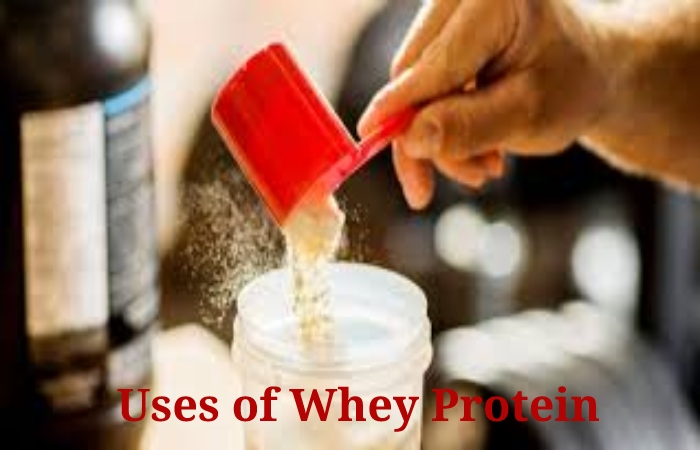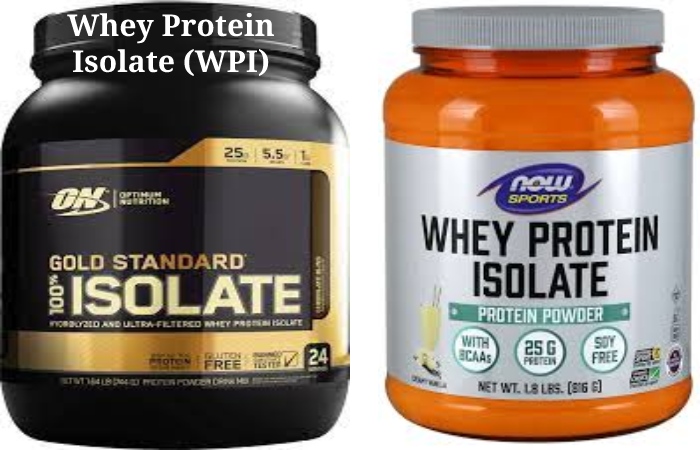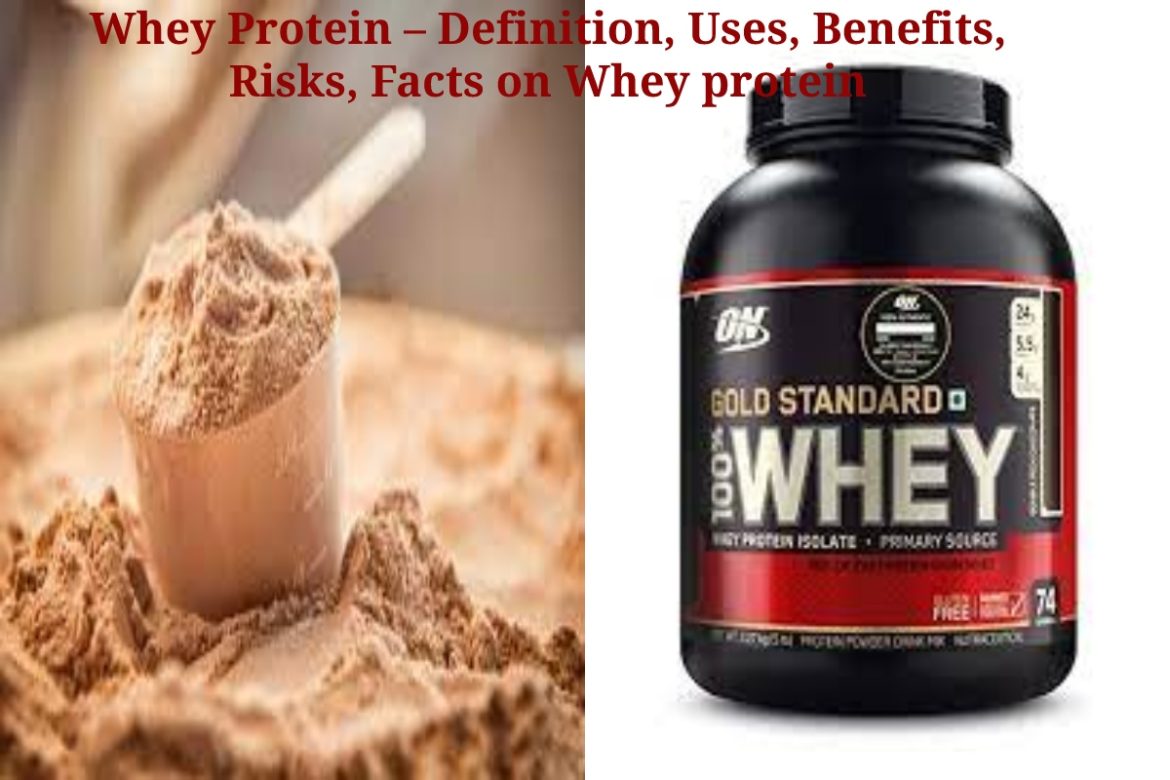Define Whey Protein
Whey protein is a blend of proteins isolated from whey, which is the liquid part of milk separated during cheese making.
Milk contains two main types of proteins: casein (80%) and whey protein(20%).
Whey is present in most milk. In cheese production, the fat portions of the milk solidify, and the whey is separated from it as a by-product. If you’ve ever opened a container of yoghurt and seen liquid floating on it, it’s whey. The cheesemakers threw it away before discovering its commercial value.
Once separated during cheese making, the whey goes through various processing steps to become what people usually call whey protein. This powder is added to smoothies, meal replacements, and protein bars.
Uses of Whey Protein

Whey protein itself is not very tasty, so it is usually seasoned. Powders with chocolate, vanilla, and strawberry flavors are popular. It is essential to read the ingredient list as some foods may contain harmful additives such as refined sugar.
Its intake is a convenient way to add protein to your daily requirement. It can be vital for bodybuilders and gym enthusiasts, and people who need to lose weight or who lack protein in their diets.
Most flavored whey proteins are also delicious and can add incredible flavor to healthy recipes like smoothies. Whey is generally well tolerated, although people with lactose intolerance should be careful, and some people may even be allergic to it.
The Benefits And Risks Of Whey Protein
People commonly use whey as a supplement, along with endurance exercise, to improve muscle protein synthesis and promote lean muscle growth. Milk is made up of two proteins: casein and whey. It can be separated from the casein in milk or obtained as a by-product in cheese making. And also, it is a complete protein because it contains all 9 essential amino acids. It is low in lactose.
Many benefits are associated with consuming it, and researchers are constantly discovering new potential therapeutic properties. Here we explain the advantages and look at some of the side effects and potential risks.
Whey Protein Facts
Many potential benefits depend on individual research, and more evidence is necessary before final judgment. It is a mixture of beta-lactoglobulin, alpha-lactalbumin, bovine serum albumin, and immunoglobins.
Possible benefits include weight loss and lower cholesterol levels.
Potential hazards include nausea and headache, but it is not hazardous in moderation.
Additional Benefits Of Whey Protein
1. Help You Lose Weight:

In a study of 158 people, published in the journal Nutrition & Metabolism Trusted Source, those who received the whey “lost significantly more fat and showed better muscle retention than those who consumed the control drink.”
2. Anti-Tumor Properties:
Anticancer Research Trusted Source magazine had published promising results using its concentrates in the treatment of cancer.
3. Reduce Cholesterol:
Whey supplements were provided to 70 overweight men and women for 12 weeks and measured various parameters such as lipid and insulin levels. They found that “there was a significant reduction in total and LDL cholesterol at week 12 in the whey group compared to the casein group.”
4. Asthma:
It can improve the immune response in children with asthma. A small study of 11 children, published in the International Journal of Food Science and Nutrition Trusted Source, found that children with asthma who were given 10 grams of it twice daily for 1 month had an improved immune response.
5. Blood Pressure and Cardiovascular Illness:

It supplemented drinks significantly lower blood pressure in hypertensive patients; their risk of developing heart disease or stroke was also lower.
Some people who are allergic to milk may be allergic to whey. It usually does not cause side effects in moderate doses.
However, consumption of very high doses can cause:
- Stomach pain
- Convulsions
- Decreased appetite
- Nausea
- Headache
- Fatigue
Consistent high doses of it can also trigger acne. From a nutritional standpoint, it is very unusual and has no natural equivalent. Some people think that such nutritionally refined foods are risky because, although they are high in nutrients, the balance is highly skewed towards protein.
Types of Whey Protein
There are three main types of whey protein; Whey Protein Concentrate (WPC), Whey Protein Isolate (WPI), and Whey Protein Hydrolyzate (WPH).
1. Whey Protein Concentrate
WPC is low in fat and low in carbohydrates. The percentage of protein in the WPC depends on its concentration. Lower-tier concentrates typically contain 30 percent protein, while higher-tier generally concentrates contain up to 90 percent.
2. Whey Protein Isolate

WPIs are further processed to remove all fat and lactose. The WPI is usually at least 90% protein.
3. Whey Protein Hydrolyzate.
WPH is a “pre-digested” form of whey protein because it has already undergone partial hydrolysis, a process the body needs to absorb. WPH does not require the same digestion as the other two forms of it.
Additionally, WPH is commonly used in medical protein supplements and infant formulas due to its improved absorption and reduced allergen potential.
Whey Protein Helps In Muscle Building And Weight Loss
Whey protein supplements and endurance exercise can help improve muscle protein synthesis and promote muscle growth. A study published in the International Journal of Sports Nutrition and Exercise Metabolism concluded that “adding it during resistance training offers several benefits over resistance training.” In addition, “men who took it had a greater relative gain in lean mass.”
Another study published in the International Journal of Sports Nutrition and Exercise Metabolism concluded that “in two groups of resistance-trained men, it isolate provided significantly greater strength, muscle mass, and fat loss.
Bulk compared to casein supplements during an intense 10-week resistance training program. If you are looking to buy a whey isolate supplement, there is an excellent selection online with thousands of customer reviews.


